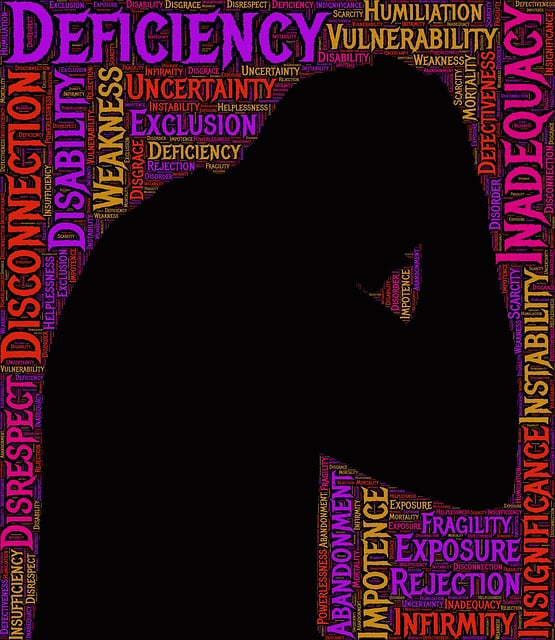Substance abuse in Denver carries significant risks, including addiction, health damage, and mental health vulnerabilities. Organizations like Denver Suicide Prevention Therapy address these issues holistically. They promote early intervention, mental wellness education, and culturally sensitive therapy to break the cycle of addiction, build resilience, and create a supportive environment for at-risk individuals.
Substance abuse poses significant risks, impacting individuals’ health, relationships, and overall well-being. This article explores comprehensive risk reduction strategies to combat this pervasive issue. We delve into the understanding of substance abuse, its underlying causes, and the potential consequences. By examining a multi-faceted approach, we highlight effective tactics for prevention and early intervention. Additionally, we focus on Denver Suicide Prevention Therapy as a pivotal tool in mitigating substance abuse, emphasizing its role in fostering recovery and reducing harmful behaviors.
- Understanding Substance Abuse and Its Risks
- Strategies for Risk Reduction: A Comprehensive Approach
- The Role of Denver Suicide Prevention Therapy in Mitigating Substance Abuse
Understanding Substance Abuse and Its Risks

Substance abuse is a complex issue that affects individuals across various demographics and backgrounds. It involves the harmful use of drugs or alcohol, leading to significant physical, mental, and social consequences. Understanding the risks associated with substance abuse is a crucial step in developing effective prevention strategies. The potential impacts range from short-term health issues like addiction and impaired judgment to long-term problems such as organ damage, cognitive impairment, and an increased risk of suicide or accidental overdose.
In Denver, where access to resources for mental wellness is accessible through various means including the Mental Wellness Podcast Series Production and public awareness campaigns development, recognizing these risks is paramount. Denver Suicide Prevention Therapy highlights the interconnectedness of substance abuse and mental health issues, emphasizing the importance of early intervention and comprehensive treatment approaches. By fostering inner strength development, communities can empower individuals to make informed choices, seek help when needed, and reduce the likelihood of adverse outcomes related to substance misuse.
Strategies for Risk Reduction: A Comprehensive Approach

Risk reduction strategies for substance abuse require a comprehensive approach that addresses multiple facets of an individual’s life. One key component is incorporating mental health education programs designed to enhance emotional intelligence and foster healthy coping mechanisms. These programs can equip individuals with the tools to manage stress, regulate emotions, and make informed decisions regarding their well-being. By integrating these educational initiatives into community settings and schools, we can create a supportive environment that promotes emotional healing processes and reduces the risk of substance abuse.
Additionally, Denver suicide prevention therapy plays a pivotal role in mitigating risks associated with mental health crises. Such therapeutic interventions focus on identifying warning signs, teaching resilience, and providing accessible support systems. Through regular sessions with trained professionals, individuals can learn to navigate emotional challenges, build self-esteem, and develop healthy habits that contribute to overall mental wellness. Combining these strategies ensures a multifaceted approach to risk reduction, aiming to create a safer and more supportive environment for those struggling with substance abuse or at-risk of suicide.
The Role of Denver Suicide Prevention Therapy in Mitigating Substance Abuse

Denver Suicide Prevention Therapy plays a pivotal role in mitigating substance abuse by addressing underlying psychological and emotional issues. Through specialized techniques, this therapy helps individuals develop coping mechanisms to deal with stress, anxiety, and depression—common triggers for substance misuse. By fostering self-awareness exercises, Denver Suicide Prevention Therapy empowers clients to recognize their feelings and behaviors, breaking the cycle of addiction.
Cultural sensitivity in mental healthcare practice is another key aspect integrated into this therapy. Recognizing that each individual comes from a diverse background, therapists tailor their approach to respect and understand cultural beliefs and values, ensuring effective treatment for all. This holistic method promotes mental wellness by not only treating symptoms but also fostering an environment where clients feel seen, heard, and understood, which is crucial for long-term recovery.
Substance abuse poses significant risks, but with a comprehensive approach and strategies like Denver Suicide Prevention Therapy, it’s possible to mitigate these dangers. By understanding the issue and adopting a holistic strategy that includes therapy, support groups, and education, individuals can reduce their vulnerabilities and lead healthier lives. Denver Suicide Prevention Therapy serves as a vital tool in this fight, emphasizing the importance of early intervention and long-term care for those struggling with substance abuse.














